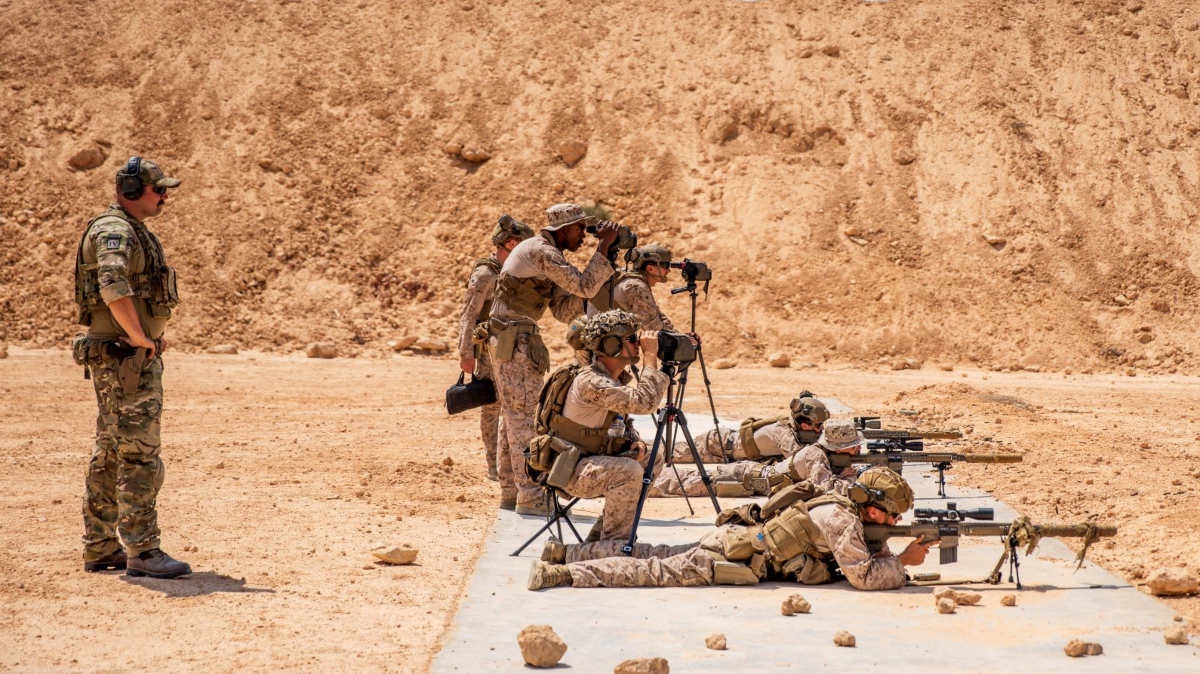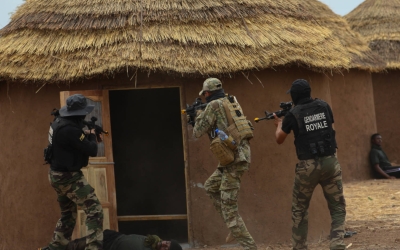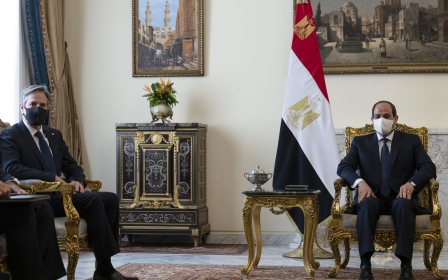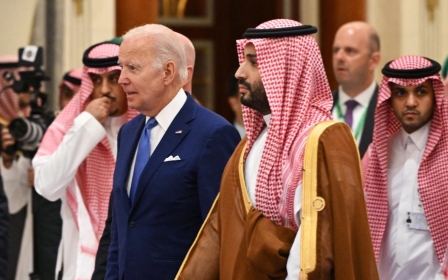Biden administration to formalise investigating civilian deaths by US arms

The Biden administration has rolled out a new system to track and investigate incidents where American-made weapons are used by foreign governments to injure or kill civilians.
In a cable sent to all US embassies and consulates last month, the State Department announced the creation of Civilian Harm Incident Response Guidance (CHIRG), a process that formalises the way US diplomats investigate reports of foreign governments misusing American weapons to harm civilians.
State Department officials will be tasked with investigating allegations of abuse from diplomatic and intelligence channels, the United Nations, media or civil society groups, according to The Washington Post, which first reported the story.
If officials corroborate the reports, they will propose a set of actions that span from bolstering US-led training or education of weapons systems, to issuing a diplomatic response to the reports or cutting off arms sales.
"CHIRG establishes a process to respond to new incidents of civilian harm and prevent them from recurring, and to drive partners to conduct military operations in accordance with international law," a State Department Spokesperson told MEE.
New MEE newsletter: Jerusalem Dispatch
Sign up to get the latest insights and analysis on Israel-Palestine, alongside Turkey Unpacked and other MEE newsletters
They didn't comment when asked if the investigations and decisions would be made public.
President Joe Biden entered office pledging to put human rights at the centre of his foreign policy, and criticised the Trump administration for giving a free hand to autocratic rulers. Although the administration has framed its geopolitical competition with Russia and China in terms of a fight for democracy, it has courted autocracies including many Middle Eastern leaders like Saudi Arabia’s Crown Prince Mohammed Bin Salman and Egyptian President Abdel Fattah el-Sisi.
Supporters say the US has had to lean on a realpolitik-oriented foreign policy in order to prevent Beijing and Moscow from making inroads in strategic countries and address concerns for ordinary Americans, like high energy prices amid the war in Ukraine. Human rights advocates say the administration has abandoned its commitment to promoting democracy and has emboldened autocratic leaders by maintaining security ties
The Middle East has been at the centre of this debate.
In Tunisia, where President Kais Saied has pursued an authoritarian crackdown, some defence and security ties with the US have been “growing”, current and former US officials previously told Middle East Eye.
Meanwhile, the Biden administration has pivoted from critiquing Crown Prince Mohammed Bin Salman to courting the 38-year-old ruler, in a bid to check China’s rising influence in the oil-rich kingdom, combat Iran, and address rising energy prices amid the war in Ukraine.
Despite its poor human rights record, Saudi Arabia remains the biggest buyer of US weapons with about $126bn in active government-to-government sales.
Eyes on Egypt
The Biden administration has taken some steps it says address human rights concerns.
Last year, the Department of Defence unveiled the Civilian Harm Mitigation and Response Action plan to prevent and investigate civilian deaths by American forces, which parallels the State Department initiative.
Earlier this year, the White House announced a new policy for approving arms sales, which it said is focused on “reinforcing respect for human rights, international humanitarian law, democratic governance, and rule of law”.
On the ground, however, the US has been at the centre of a number of incidents raising questions about America's use of force and its security assistance to Middle Eastern governments.
The Guardian reported in August that American and German forces trained Saudi soldiers accused of carrying out "deliberate mass killings" on the border with Yemen. In 2021, a drone strike in Kabul Afghanistan that the US said killed an Islamic State (IS) group "suicide bomber", actually killed 10 civilians and there was no IS death. The US later acknowledged the deaths.
The State Department’s new guidance protocol will face an early test in Egypt, where the Biden administration has a 14 September deadline to decide whether or not to withhold a portion of Cairo’s roughly $1.3bn in annual military aid over human rights concerns.
Congress has made $320m of the aid Egypt receives contingent on President Abdel Fattah el-Sisi improving the country's human rights record.
The US has tied $235m to "sustained and effective steps” taken by Egypt to enhance the protection of religious minorities and women, bolster democratic institutions, and hold security forces accountable for violating human rights, among other metrics. Separately, $85m is linked to Cairo releasing political prisoners and stopping the intimidation and harassment of Americans.
The Biden administration is under pressure from some members of the Democratic Party to withhold the full amount of aid.
In a letter sent to US Secretary of State Anthony Blinken in August, 11 lawmakers cited a State Department 2022 report that noted “significant human rights violations” committed by the Egyptian government, and urged the military aid to be withheld.
Middle East Eye delivers independent and unrivalled coverage and analysis of the Middle East, North Africa and beyond. To learn more about republishing this content and the associated fees, please fill out this form. More about MEE can be found here.





